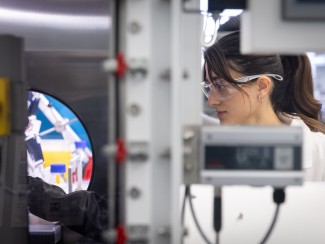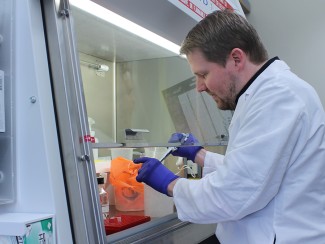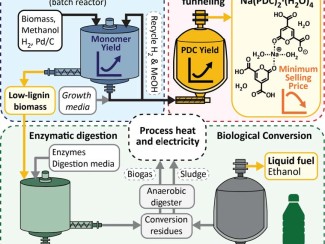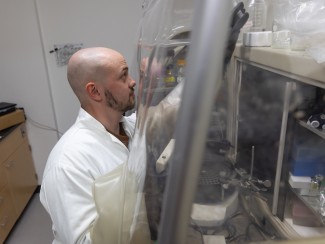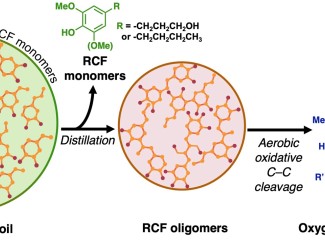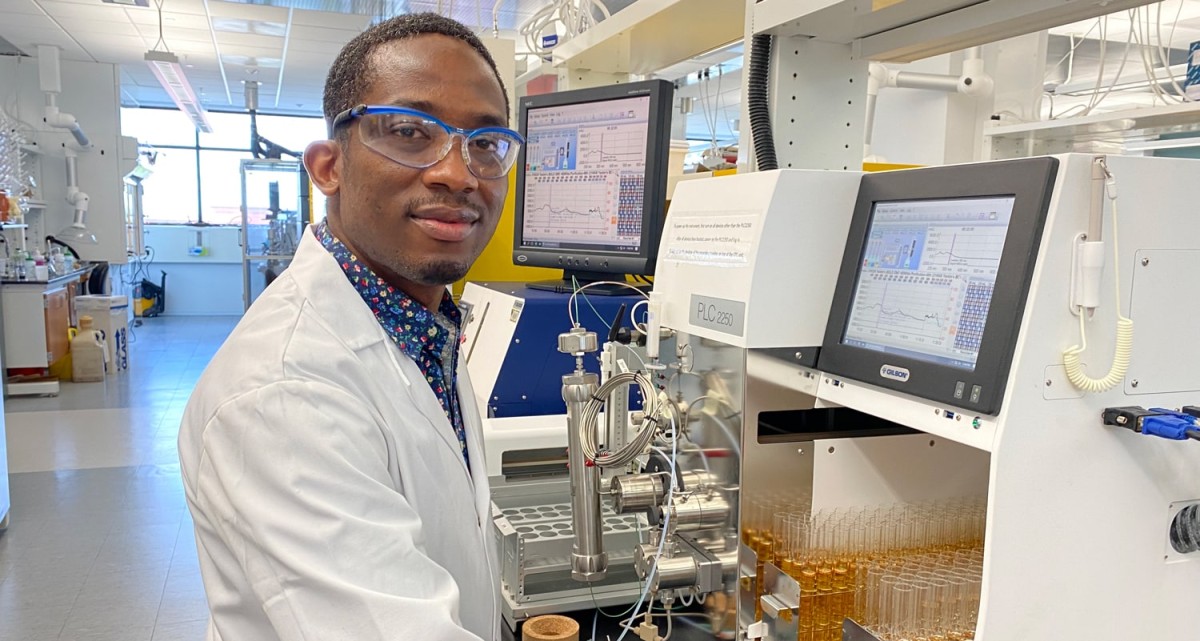
Our graduate students and postdoctoral researchers play an enormous role in the transition to a sustainable, resilient, and affordable energy future that is centered on social and economic equality. From lab experiments to field work to classrooms, these leaders of today and tomorrow are our catalysts for energy discovery.
In this series, we learn more about what inspired these talented researchers, what brought them to their field of study, and the questions that drive their work at the Wisconsin Energy Institute.
This week we spoke with Surajudeen Omolabake, a graduate student in Shannon Stahl’s lab at the University of Wisconsin–Madison. Surajudeen is from Ibadan, Oyo State, Nigeria and studied industrial chemistry for his B.S. at the University of Benin and chemistry for his M.S. at University of Wisconsin–Milwaukee. He is now a Ph.D. candidate studying the conversion of lignin into more advantageous chemicals at UW–Madison.
What brought you to UW-Madison and the Wisconsin Energy Institute?
I wanted to obtain a doctorate degree from a renowned university. As a resident of Madison, UW–Madison naturally was my top choice. I was lucky to join the Stahl group’s lignin team shortly before they moved to the Wisconsin Energy Institute building where I now conduct my research.
What is one thing that surprised you about UW, Madison, or Wisconsin?
I was surprised by the welcoming culture here at UW–Madison. The professors I interact with are very down-to-earth and want everyone to succeed. The city is very friendly, and people are excited to make small talk.
Can you tell me about your research in a way that you would describe to friends or family?
My research is focused on the conversion of waste woody materials, known as lignin, to useful chemicals via oxidation chemistry. These chemicals are mostly derived from petroleum sources. It would be cool if we could primarily obtain these compounds from renewable sources like trees so we can keep our planet pristine.
What led you to this area of research?
I think my background contributed to my current research focus. I grew up in the oil-producing Niger Delta region of Nigeria where environmental pollution is a huge problem.
I have seen some of the negative effects of petroleum exploration, (and by extension, petrochemicals), and wanted to come up with an alternative way of accessing some of these important chemicals in a sustainable and environmentally friendly way.
Surajudeen Omolabake
What do you hope to accomplish after your time at UW-Madison and the Wisconsin Energy Institute?
I hope to work as a researcher in an R&D company where I can apply the skills gained at UW–Madison to conduct cutting-edge research and in doing so, improve the quality of life of humans.
What is your favorite memory at the Wisconsin Energy Institute so far?
I still have a lot of memories to make at the Wisconsin Energy Institute and Great Lakes Bioenergy Research Center, but my favorite memory is the past annual science meeting. It was very engaging, and I had the opportunity to learn from great scientists and researchers working in the lignin field.
What has been the most difficult part of working as a researcher during the COVID-19 pandemic?
The most difficult aspect of working as a researcher during the COVID-19 pandemic is the limited communication with other students and coworkers. I learn better from people when there is physical interaction, which was very limited. I am excited that things are quickly returning to the pre-pandemic level.
On the other hand, what has been the most fun part of working as a researcher during the pandemic?
The most fun part of working as a researcher during the pandemic is not leaving the house for a meeting! I certainly enjoyed being in the comfort of my home during a group meeting or an official event.
What do you do when you’re not working?
I like to watch movies and play video games. I also like to try new things around the Madison area in the summer.
What is one fun fact about yourself?
One fun fact about myself is that I am a dog daddy to Sky, a Pomeranian, Brownie, an Aussiedoodle, and Cecille, a Schnauzer.

